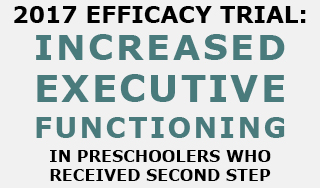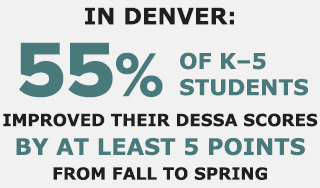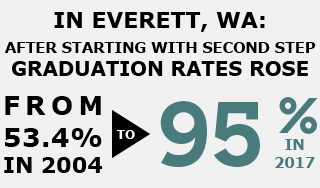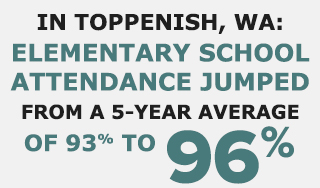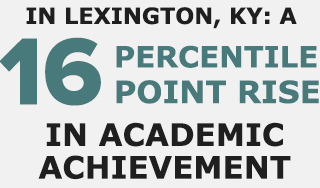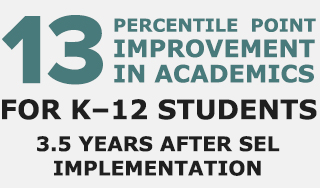
Improve Academics
Invest in Each Child's Potential
Related Stories
Give All Students a Better Shot at Success
Social, emotional, and cognitive development are interdependent. Decades of research have shown that children need social and emotional competence to succeed in school.1, 2 Regardless of socio-economic factors, social-emotional competence leads to improved relationships and increased school connectedness, which all provide powerful support for academic success.3
Boost Attendance and Graduation Rates
A positive, nurturing school environment keeps students coming back. Many schools that have implemented a universal social-emotional learning program have seen significant improvements in day-to-day attendance and four-year degree completion.
Improve Measures of Academic Performance
In a 2011 meta-analysis of 213 social-emotional learning programs, participants who experienced SEL programs demonstrated not only improved social and emotional skills, attitudes, and behavior, but also demonstrated improved academic performance reflecting an 11-percentile-point gain in achievement.4
- Flook, L., Repetti, R. L., & Ullman, J. B. (2005). Classroom social experiences as predictors of academic performance. Developmental Psychology, 41(2), 319–327.
- Raver, C. C. (2002). Emotions matter: Making the case for the role of young children’s emotional development for early school readiness. Social Policy Report, 16(3), 3–18.
- Wilson, D. (2004). The interface of school climate and school connectedness and relationships with aggression and victimization. Journal of School Health, 74(7), 293–299.
- Durlak, J. A., Weissberg, R. P., Dymnicki, A. B., Taylor, R. D., & Schellinger, K. B. (2011). The impact of enhancing students’ social and emotional learning: A meta-analysis of school-based universal interventions. Child Development, 82(1): 405–432.
Keep Exploring Stories Like This One
Questions?
What is Second Step?
Download Our Free Ebook
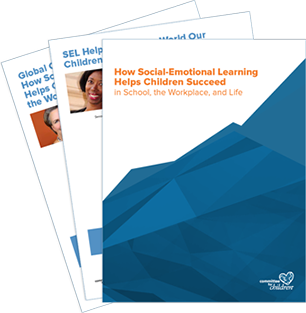
How Social-Emotional Learning Helps Children Succeed in School, the Workplace, and Life
This ebook features perspectives from a number of leading teachers, administrators, researchers, and education experts.
